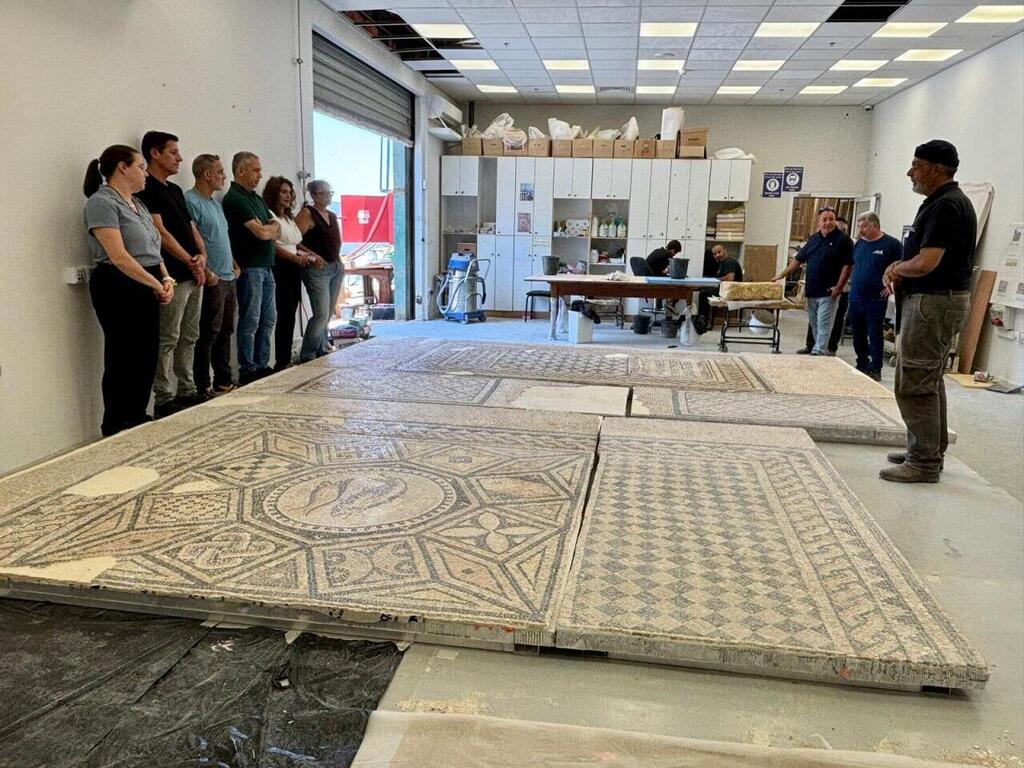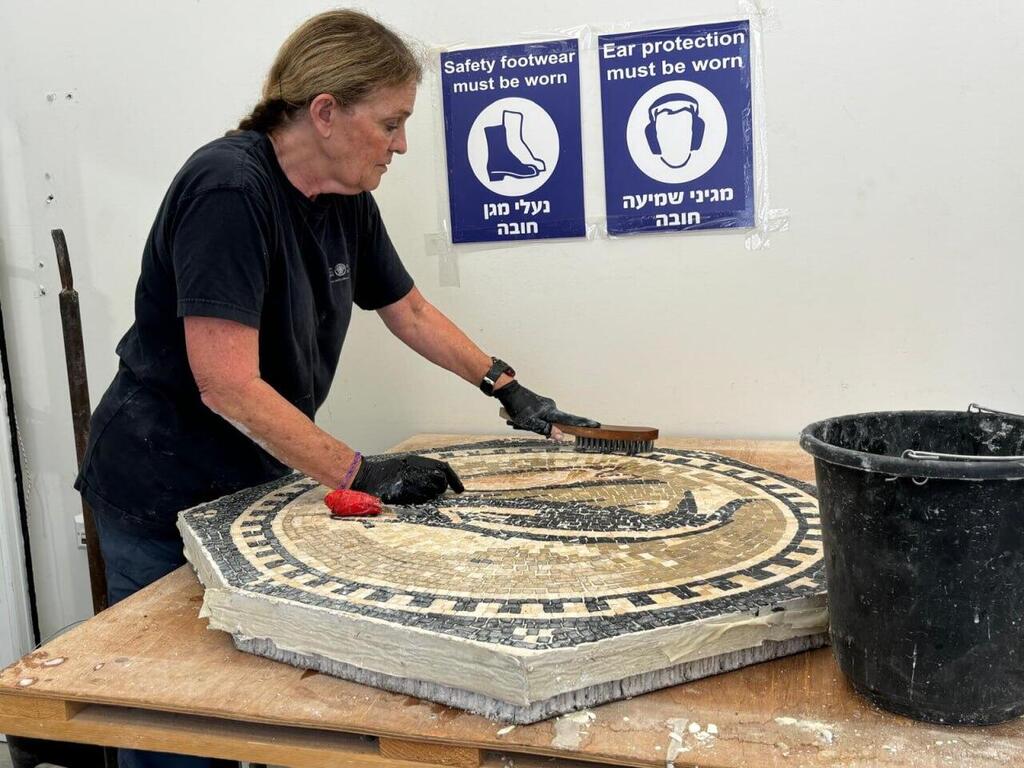A magnificent mosaic floor from an ancient church, which was unearthed at Megiddo Prison and which has captivated the Christian world, is set to embark on an extraordinary journey beyond Israel’s borders. This stunning find will be showcased at the Museum of the Bible in Washington for three months before making its return home.
This discovery ranks among the most exquisite archaeological revelations in the region. The rare mosaic came to light during rescue excavations conducted by the Israel Antiquities Authority on the prison grounds in 2005. Dating back to the 3rd century, this splendid mosaic floor is a vital piece of one of the earliest known Christian prayer houses globally.
This mosaic quickly gained status as one of the world's rarest attractions, as it features the earliest known inscription in the country, containing the first mention of Jesus as a god in Israel.
Recently, both the Vatican and the Museum of the Bible in Washington expressed interest in displaying the mosaic. The Israel Antiquities Authority decided to send this masterpiece to the Washington museum, accompanied by an experienced conservation team, to be exhibited temporarily there. According to the plan, the mosaic will return to Israel in three months.
Eli Escusido, director-general of the Israel Antiquities Authority, said the preserved mosaic will be transported safely to Washington.
“The mosaic has undergone meticulous preservation and restoration at our workshop in Beit Shemesh. In an exceptionally rare move, it will be displayed at the Museum of the Bible for three months before returning. It will be reinstalled at Megiddo only after the prison is vacated and a visitor center is established in its place. Our team carefully dismantled the mosaic into pieces, ensuring its safe transport to the U.S. with our experts overseeing the process,” he said.
Gil Lin, head of the Megiddo Regional Council, says his municipality looks forward to allowing visitors to view the artifact. “This is a breathtaking discovery with immense historical and religious significance, uncovered right here in Megiddo – a region rich with evidence of settlement and agricultural, cultural, military, and economic activities spanning thousands of years. When the mosaic floor returns, we plan to establish a museum at the historical site where it was found, allowing everyone to witness its beauty firsthand,” he said.
The remarkable discovery of the mosaic dates back about 19 years. The Megiddo area is renowned for its wealth of archaeological treasures from various periods. Consequently, when the Prison Service proposed constructing new wings to replace temporary quarters, the Antiquities Authority insisted on conducting excavations. The 2005 excavations also uncovered coins and pottery.
Excavations conducted approximately two decades ago in the western and upper parts of Megiddo Prison revealed residential structures and settlement facilities from the Byzantine period (4th and 6th centuries CE). Additionally, layers containing artifacts from the Roman period, particularly in soil pockets and spaces beneath the floors of Byzantine structures, were discovered. A Roman-era mikveh (ritual bath) was also uncovered at the site, adding to another mikveh excavated during archaeological rescue operations conducted during the Mandate period. The findings suggest that during the Byzantine period, the mikveh was sealed, and buildings and floors were constructed above it.




